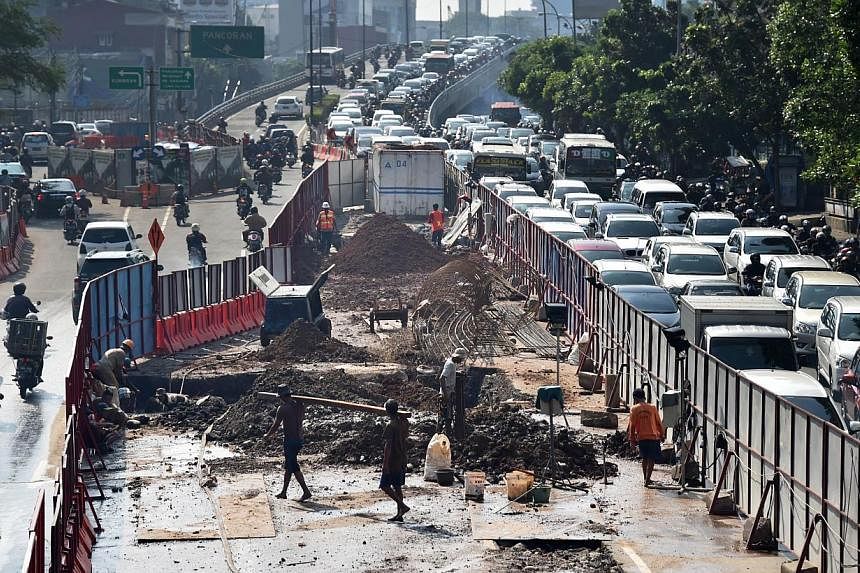JAKARTA (Reuters) - Indonesia posted a trade surplus for the fifth straight month in April, but that stemmed from imports tumbling more quickly from a year earlier than exports did, showing that the economy remained sluggish at the start of the second quarter.
Imports plunged 22.31 per cent in April, sliding for a seventh straight month. The biggest fall was for refined oil products, down 43.6 per cent from a year earlier.
The Statistics Bureau did not give an April breakdown, but said January-April imports of raw materials were down 17.81 per cent from a year earlier, capital goods off 13.94 per cent and consumption goods down 15.74 per cent.
April exports from Southeast Asia's largest economy, hurt by low commodity prices, dropped 8.46 per cent from a year earlier, more than a forecast 7 per cent.
"On the surface, the fact that trade balance remains in surplus and actually higher than market expectation is a good thing," said Wellian Wiranto, economist at OCBC in Singapore. "However, if we judge from the fact that it has been brought by a deep slump in imports, including that of raw material and capital goods, it becomes harder to rejoice unconditionally," he added.
Exports account for more than 20 per cent of Indonesia's gross domestic product, while consumption is about 56 per cent.
Sluggish exports have helped kept the current account deficit wide, but there's as much concern about low imports, which indicate Indonesia isn't getting investment needed to boost growth.
President Joko Widodo has promised to speed infrastructure spending, but there are no signs investment volumes are rising significantly.
Annual economic growth in the first quarter was 4.7 per cent, the weakest since 2009.
Up through April, the new administration has spent less than 2 per cent of planned 2015 infrastructure spending.
The April trade data comes ahead of a Bank Indonesia policy meeting on Tuesday, the first since the first quarter growth number.
In March, Vice President Jusuf Kalla said he wanted rates to be 1 percentage point lower at the end of 2015 than at the start.
Only two of 21 analysts in a Reuters poll expect a cut in the benchmark rate on Tuesday. The others expect a hold, as BI remains concerned about inflation, the rupiah and the current account deficit.
BI will announce current account figures for the first quarter later on Friday.
Wiranto of OCBC said the April trade numbers likely will not give BI "the comfort zone to cut rates".

